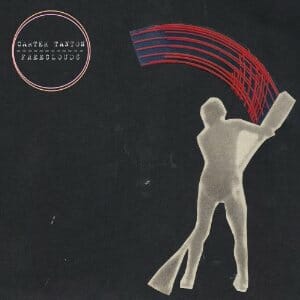Despite the varied sounds, it’s the more immediate pop numbers that work the best. “Murderous Joy” opens the album with breezy country-rock. The track— recorded at home like most of the album—finds a relatively dense and textured sound that suits the album to come. Tanton finds a more aggressive hook with “Horrorscope,” the album’s most driving track. The noisy atmosphere of the song works against Tanton’s voice, but provides a nice background for the lead guitar to cut through.
Many of the songs on Freeclouds build around strong melodies that could work as folk-rock recordings if left stripped down. At times, as on “Gauze of Song,” we get hints of My Morning Jacket. Tanton doesn’t leave his songs alone, often casting a certain amount of gauze over them (as at least one song title would suggest). The lo-fi production technique does help to cohere the album, but at times it works too much against the grain of the song itself. Rather than create complexity and intrigue, the extras simply distract from Tanton’s strong songwriting. “Horrorscope” finds the balance, but a slower track like “Saturday” needs more space in it.
“Pitch Bent Flute” closes the album just on that line. Referencing the Bowie cut “Wild Eyed Boy from Freecloud,” the piece captures its mythic mood well. The song develops nicely, but it sounds just a little too thick. The reverb on Tanton’s vocals overdoes it just a bit, but the song manages to work almost in spite of itself. Some of that success, and throughout the album, comes from Tanton’s voice itself. His tenor is full and expressive, and maintains warmth without forcing anything.
Between Tanton’s voice and his writing, it’s hard not to think that a more straightforward album wouldn’t work better for him. The textures he provides his best songs give them a specific and idiosyncratic feel that starts to create something special. When that goes to far, or when he loses his strong sense of melody (as on “Pasture Sound”), the album suffers without offering compensatory experimental fun. Even with a few missteps, Tanton’s put together a collection showing that he’s capable of memorable work, and likely to produce more of it.
